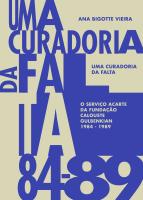Almada Negreiros
Articles tagged with Almada Negreiros
Tag Archive
- (Re)Imagining African Independence
- Achille Mbembe
- activists
- Afrikanische Straße
- afro cinema
- afro-brazilian
- Akwaaba Music
- artist
- association tchiweka de documentation
- Ateler Mutanba
- bando
- benguela
- black music
- body
- borders
- Cabo-Verde
- Capeverdean
- caribbean
- casas
- César Schofield Cardoso
- Chomsky
- choreographer
- civil rights
- colonial legacies
- COVID-19
- Cristiano Ronaldo
- cultural memory
- DAMARA INGLÊS
- Danças africanas
- democracia racial
- descobrimentos
- drawing literature
- estudantes
- Euridice Kala
- exile
- Festival de Músicas do Mundo
- Festival of Essaouira Gnaoua
- Fiction
- Flora Gomes
- France
- Germano de Almeida
- havana
- indentity
- interculturalit
- israel
- Jornalism
- JSF#2
- korubo
- L'Internationale
- language diversity
- literatura angolana
- literatura cubana
- mar
- mare nostrum
- Memories of the Poisoned River
- Mimesis
- museu da memória
- música popular
- nástio mosquito
- new negro
- obroni
- Octavia Butler
- ocupações temporárias
- One World in Relation
- pandemia
- patrimony
- Paulo Flores
- Pedro Pinho
- performance
- performs
- photography
- poland
- polish photography
- políticas de memória
- post-colonial contemporary art
- projeto
- Remittances
- Resem Verkron
- resistance
- revolução
- riots
- RUI MAGALHÃES
- Ruy Duarte de Carvalho
- Sambizanga
- SARS
- senhor
- social construct
- social inclusion
- south
- Ta-Nehisi Coates
- Trinidad
- uk garage
- Uma Biografia”
- utopia
- Vazante
- visual production
- Visuality
- war
- Western civilization
- “(Re)membering
 The questions raised by Ana Bigotte, on the contrary, are not formulated in the strict disciplinary framework of art history, but from the porous and open framework of theory and cultural studies, taking as fundamental references the work of authors such as Luís Trindade or Boaventura de Sousa Santos, whose object goes beyond the specific sphere of the artistic to approach culture as a social process with multiple branches. It does so by following the path opened by André Lepecki, who formulated interesting hypotheses about the construction of the Portuguese social "body" from the study of dance and performance. This is another distinctive specificity of the Portuguese case that contrasts with that of the neighboring country: the focus on the arts of the body and the so-called "living arts", such as theater, dance, and music.
The questions raised by Ana Bigotte, on the contrary, are not formulated in the strict disciplinary framework of art history, but from the porous and open framework of theory and cultural studies, taking as fundamental references the work of authors such as Luís Trindade or Boaventura de Sousa Santos, whose object goes beyond the specific sphere of the artistic to approach culture as a social process with multiple branches. It does so by following the path opened by André Lepecki, who formulated interesting hypotheses about the construction of the Portuguese social "body" from the study of dance and performance. This is another distinctive specificity of the Portuguese case that contrasts with that of the neighboring country: the focus on the arts of the body and the so-called "living arts", such as theater, dance, and music. 